CPaCE News
Ethnic Studies Give Students a Head Start on College and Culture
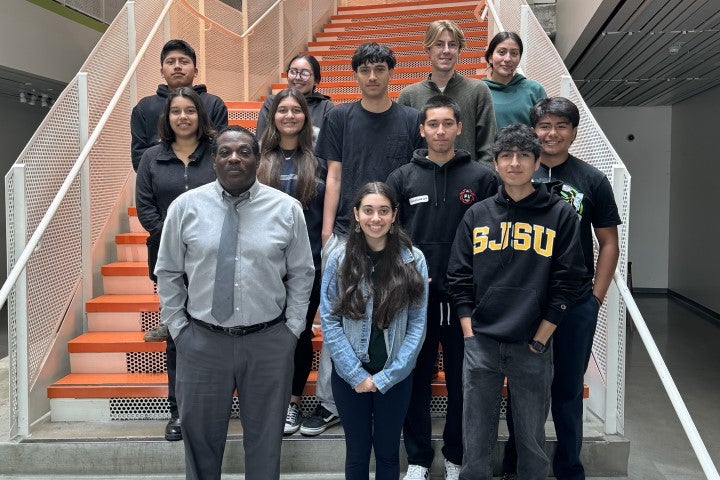
PHOTO: Professor David Williams (front row, far left) with students in his Introduction to Racial and Ethnic Studies at DaVinci High School.
Beginning with the 2023-2024 academic year, the CSU system now requires all students to take an ethnic studies or social justice class in order to graduate, as mandated by California’s Assembly Bill 1460. In partnership with participating local school districts, CSULB already has a history of making these courses more accessible, even as other states are dismantling them as part of a broader backlash against Diversity, Equity, and Inclusion (DEI) initiatives.
Since 2015, the College of Liberal Arts and College of Professional and Continuing Education (CPaCE) have offered dual-enrollment Ethnic Studies courses that give high school students valuable credits—for free—that are transferable to most colleges and universities. Classes are currently offered at Long Beach Unified School District (LBUSD), El Rancho Unified, Norwalk-La Mirada Unified, Paramount Unified, Da Vinci Schools, and Port of Los Angeles High School.
"We get to study, analyze, and discuss history, culture, and the social structure through a relational lens that reveals the complex beauty of what it is to be a BIPOC in the U.S.,” said Noe Ramirez, CSULB lecturer in Sociology and Chicano & Latino Studies, who has been teaching three Ethnic Studies courses at Port of Los Angeles High School since 2022.
Ethnic Studies courses cover a variety of historical and contemporary issues in Chicano/Latino, African American, Asian American, and Native American communities. Class discussions span current events including U.S. elections, immigration and borders, Black Lives Matter, LGBTQ issues, Murdered and Missing Indigenous Women, critical race theory, DEI, affirmative action, and more.
“Not only are students taking depth and knowledge from the material,” Ramirez continued, “but they are also developing their confidence by speaking their mind without judgement.”
“I identify as biracial, as I have one Black parent and one white parent,” explained Marshall Libby, a high school senior who took an Ethnic Studies class before graduating in June 2024. “I learned both about the struggles of one part of my identity and the privileges of the other. Taking an Ethnic Studies course at CSULB has helped prepare me for the structure and pace of college courses.”
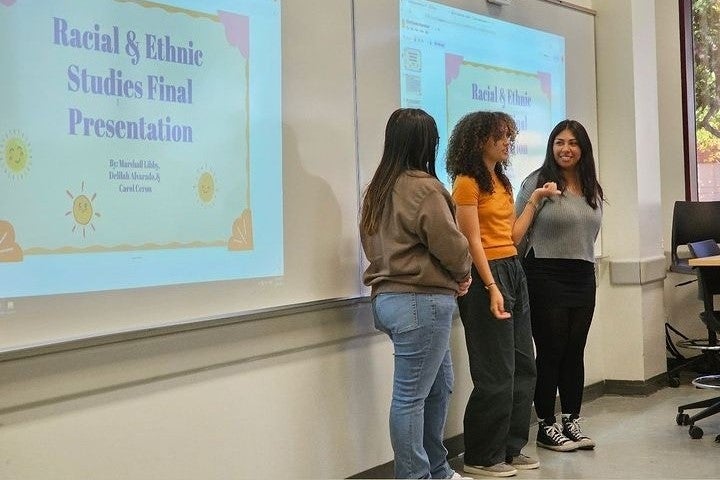 PHOTO: Ethnic Studies student Marshall Libby (center, in orange shirt) with classmates at a presentation on campus at CSULB.
PHOTO: Ethnic Studies student Marshall Libby (center, in orange shirt) with classmates at a presentation on campus at CSULB.
A total of 2,995 students have taken and passed a three-credit Ethnic Studies course since 2015. 85% of those who passed the course received an A or B, and 90% passed the course overall. Student feedback included in one LBUSD Ethnic Studies report revealed that they appreciated learning about other students’ backgrounds, enjoyed opportunities for interaction, and valued the ability to earn college credits.
According to that same report, students who have taken Ethnic Studies tend to perform at higher levels than students who did not, with significant differences observed through measurements of grades, number of AP courses taken, social-emotional learning, and being on track for graduation. With the academic rigor of a college-level class, students also benefit from opportunities to develop skills in time management, analytical writing, close reading, critical thinking, and communication.
David Williams, an adjunct professor in the African Studies department at CSULB, began teaching Ethnic Studies courses in 2018. He has worked at several LBUSD locations and currently teaches Introduction to Racial and Ethnic Studies at DaVinci High School.
“The students are mature, motivated, and compassionate,” said Williams. “I get an opportunity to share my perspectives as an African American when the situation calls for it. We have difficult conversations and probe deeply into issues that others tend to deal with superficially.”
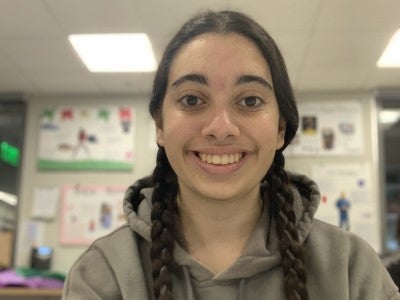 PHOTO: Da Vinci High School student Marina Fuso
PHOTO: Da Vinci High School student Marina Fuso
“I wanted to get a jump-start on my college credits, and I felt that I knew little about minority groups,” said Marina Fuso, who was a senior at Da Vinci High School when she took an Ethnic Studies class. “I really admire Mr. Williams's attitude and encouraging words. Learning about how people in the class and some of my close friends have been stereotyped and subject to racist encounters was very eye-opening. Learning about misconceptions allows me to better understand these groups and give them the respect they're owed.”
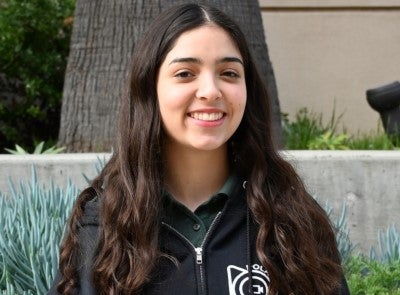 PHOTO: Alice Garcia, student in the Introduction to Ethnic Studies course.
PHOTO: Alice Garcia, student in the Introduction to Ethnic Studies course.
“The part I enjoy the most about Ethnic Studies is the different perspectives on issues,” said Alice Garcia, a junior who plans to graduate high school in 2025. “The sharing of opinions helps me open my mind and see things through different lenses. I was surprised to learn how much systematic bias is ingrained in governments and media as well as the correlation with history and sociology classes I have taken.”
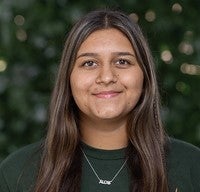 PHOTO: Alexis Corral, student in the Introduction to Ethnic Studies course.
PHOTO: Alexis Corral, student in the Introduction to Ethnic Studies course.
“Professor Williams makes my time and learning feel valuable,” said Alexis Corral, a junior who plans to pursue a career as an optometrist or veterinarian after college. “His teaching style is welcoming and helps students engage with one another during this course.”
“Ethnic Studies prepares me for getting a head start on my education and getting a feel of what college is like,” she continued. “Being exposed to different cultures and issues in the world will help me thrive within my college community.”
The culminating event of each semester is the all-day CSULB Ethnic Studies Conference on campus. Each class shares presentations or conducts workshops while interacting with students from other classes and experiencing the university environment.
“Typically, after a semester ends, I receive emails from students thanking me for the experience,” added Williams. “They say that they are more confident as public speakers, more proficient as readers and writers, and more knowledgeable about the history, culture, and issues impacting other ethnic groups. They have a better understanding of the academic rigor required in a college class, and they are excited to know that they can meet the challenge successfully.”
Click here to learn more about the Ethnic Studies dual enrollment program at CSULB.
More Community Outreach More Instructor Profiles More Student Profiles